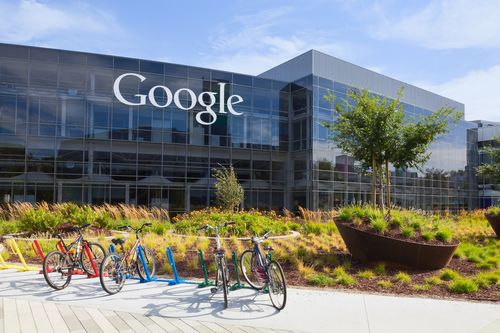Top Class Actions’s website and social media posts use affiliate links. If you make a purchase using such links, we may receive a commission, but it will not result in any additional charges to you. Please review our Affiliate Link Disclosure for more information.

U.S. District Judge Beth Labson Freeman granted plaintiff Cheryl Fillekes’ motion for certification, discounting defendant Google’s argument that the plaintiff failed to allege company-wide discriminatory policies or behavior.
Judge Freeman said Google’s written policy of non-discrimination is not enough to counter the class action allegations.
“Having such a policy does not necessarily shield a company from a discrimination suit,” Judge Freeman said. “If the Court were to conclude otherwise, no age discrimination suit would proceed past the conditional certification stage.”
The judge also afforded no particular weight to evidence offered by Google that purportedly contradicted the plaintiffs’ claims.
Such evidence is not germane at the first stage of the certification process, which the judge says is solely focused on whether notice should be sent to potential Class Members.
In the same order, Judge Freeman denied a motion by plaintiff Robert Heath for certification of a broader Class. Heath, who alleges he interviewed with Google via phone but not in person, proposed a Class definition that would include persons who applied for positions with Google but did not necessarily interview.
Judge Freeman denied Heath’s motion because he could not demonstrate that he is similarly situated to the other members of his proposed Class.
The judge said that Class would include an unknown number of applicants who were not even plausibly qualified for the jobs they applied for.
A previous attempt by Google to defeat class certification also fell flat. Google argued the plaintiffs had missed a deadline to move for class certification, but Judge Freeman determined changes in the litigation schedule made missing the deadline excusable.
Heath started this Google class action lawsuit in April 2015. He claimed Google contacted him in February 2011 for a job interview but never offered him the job, allegedly “because Google did not have a sincere interest in hiring older workers.”
Fillekes joined Heath as a plaintiff a few months later. She says she interviewed with Google via phone on four separate occasions between 2007 and 2014, and that on each occasion she was invited for an in-person interview.
However, she reports several indicators that suggest she was not hired because of her age. She claims, for example, that in May 2010 a Google recruiter told her she should put her dates of graduation on her résumé “so the interviewers [could] see how old [she was].”
Fillekes has provided the court with declarations from seven other job seekers who all say they had similar experiences.
She also points out that Google’s workforce, with a median age of 29, is far younger than the overall population of U.S. computer programmers and computer hardware engineers, whose median ages are both above 40.
With conditional certification granted, the plaintiffs can begin sending notice of the action to potential opt-in plaintiffs.
However, the judge noted that at this early stage in the proceedings, conditional certification is leniently granted. Google will have an opportunity to revisit the issue of certification after discovery is complete, at which point a stricter standard will apply.
Fillekes sought certification of a Class consisting of all individuals who interviewed in-person for any Software Engineer, Site Reliability Engineer or Systems Engineer position with Google in the U.S. between Aug. 13, 2010 and the present; were age 40 or older at the time of the interview; and were refused employment by Google.
Heath is represented by Dow Wakefield Patten of Smith Patten. Fillekes is represented by Daniel L. Low and Daniel A. Kotchen of Kotchen & Low LLP, Michael F. Brown of DVG Law Partners LLC, and George S. Duesdieker of the Law Office of George Duesdieker.
The Google Age Discrimination Class Action Lawsuit is Heath, et al. v. Google Inc., Case No. 5:15-cv-01824, in the U.S. District Court for the Northern District of California.
UPDATE: On July 19, 2019, Google has reached a settlement worth $11 million with close to 230 engineers who sued the company over claims that they were discriminated against because of their age.
ATTORNEY ADVERTISING
Top Class Actions is a Proud Member of the American Bar Association
LEGAL INFORMATION IS NOT LEGAL ADVICE
Top Class Actions Legal Statement
©2008 – 2024 Top Class Actions® LLC
Various Trademarks held by their respective owners
This website is not intended for viewing or usage by European Union citizens.















3 thoughts onGoogle Age Discrimination Claimants Win Class Certification
Add me
I have a cyst on my kidney.
Add me